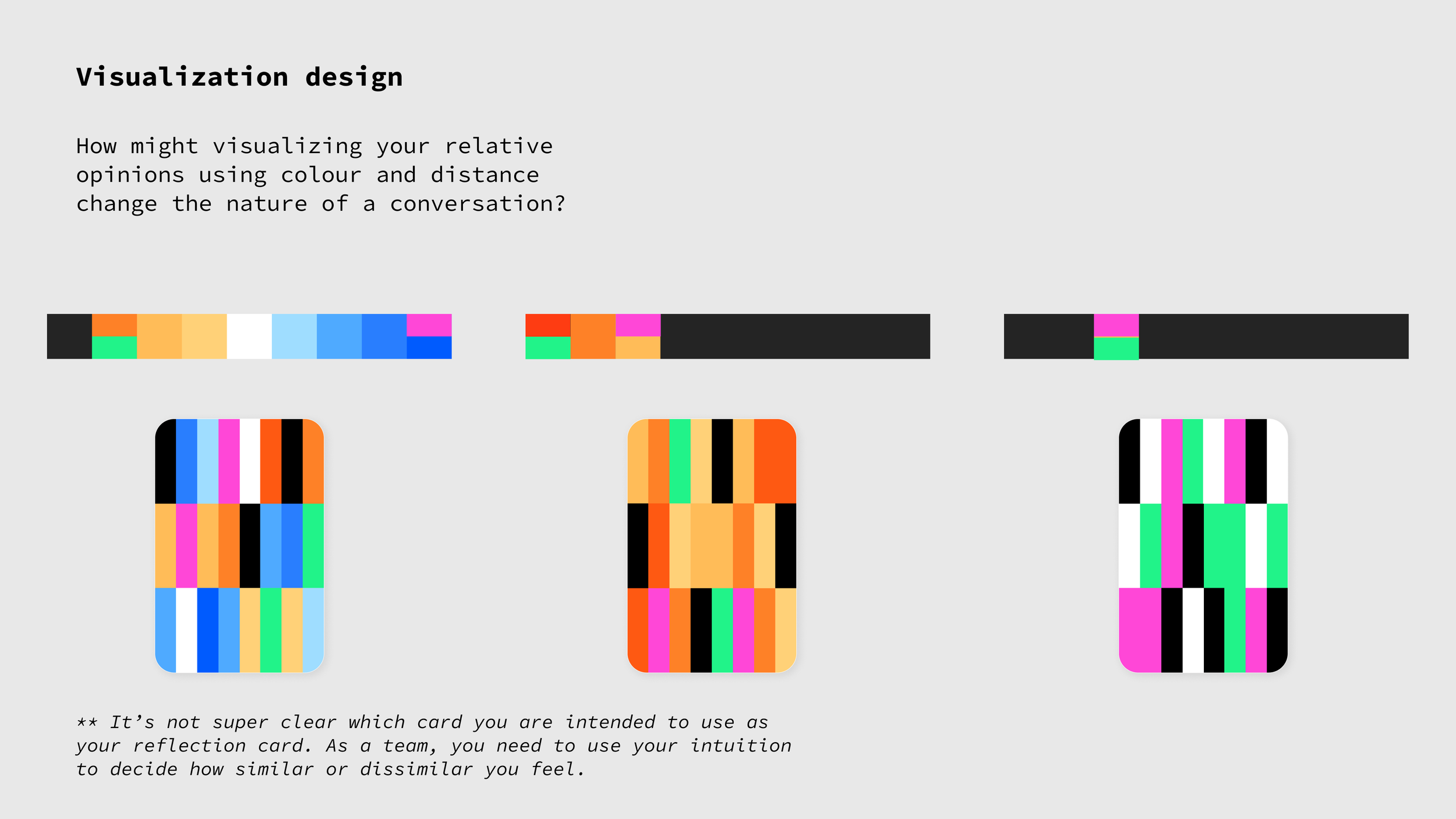
computing the uncomputable
We offer a physical object that prompts conversation to overcome polarization resulting from technological drama.
Role: Electronics, graphic design, concept design
Team: Merve Akdogan
Time: February 2023 - current
Overview
Multi-player game which approaches digital polarization by offering an opportunity to contextualize opposing beliefs, or employ self critique to similar ones. Custom designed controllers and game cards guide players to share the lived experiences which complicates the act of responding to questions in the binary.
Game Play
Core Research Questions
Meltdown guides players through a dynamic conversation using physical and digitally-connected objects: game controllers, cards, and an LED display. In absence of a facilitator, how do physical objects impact the feeling of polarizing conversations and offer unique entry points to nuanced, authentic storytelling?
While conversation prompting cards are commonly used in facilitated and non-facilitated game contexts, they are limited in their ability to guide users through dynamic multi-step conversations, and rarely take into account players-specific contexts. Meltdown exposes players relative perspectives, and builds a conversation based on their specific relative viewpoints. Do dynamic prompting strategies which ask users to draw on relative viewpoints create more nuanced conversations?
A core hypothesis built into the design of Meltdown revolves around the idea that some conversations are more productive for people with the same viewpoint, and a different conversation is best for people with opposing viewpoints. In the game, players who hold differing viewpoints are asked not to justify their opinion, but to share lived experiences which led them to believe it. Players who have similar opinions are given an opportunity to be self-critical, and try to work together to see things from another angle. Does the game mechanic succeed in creating conversations of this nature? Is dynamic prompting based on relative viewpoint a helpful strategy in conversation design at all?
Next Steps.
Conduct light user testing to test basic game experience and consider if any core research questions would be valuable to explore in a more comprehensive comparative study.








